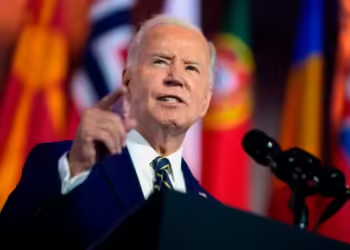Honduras set for first woman president as ruling party concedes election defeat
Reuters
By David Alire Garcia and Gustavo Palencia
TEGUCIGALPA, Nov 30 (Reuters) – Honduras’ conservative ruling party candidate late on Tuesday conceded defeat in the presidential election, paving the way for his leftist rival Xiomara Castro to become the first female leader of the struggling Central American country.
Calling Castro “president elect,” National Party contender Nasry Asfura said he had visited his opponent at her family home to offer his congratulations for winning Sunday’s vote, in a move that will end his group’s 12-year hold on power.
“Now I want to say publicly, I congratulate her on her victory,” Asfura said in a video broadcast on local television alongside photos of the two rivals hugging and smiling.
Castro has piled up a preliminary lead of almost 20 percentage points over Asfura, but the result had been held in suspense by a sluggish vote count at the electoral council.
With over 52% of votes tallied by Tuesday evening, Castro had 53.4% support, and Asfura 34.1%.
Minutes after Asfura’s concession, U.S. Secretary of State Antony Blinken also congratulated Castro and said Washington looked forward to working with her.
“We congratulate Hondurans for the high voter turnout, peaceful participation, and active civil society engagement that marked this election, signaling an enduring commitment to the democratic process,” Blinken said.
Although the electoral council has not published preliminary vote totals for congressional races, early results point to a possible majority for Castro’s Libre party and its main allies.
National Party chief David Chavez said earlier that his party would assume the role of “constructive opposition” and was ready to work with the incoming government.
The concession brings to an end a turbulent period under the National Party, which has been dogged by scandals and corruption accusations, especially during the two terms of outgoing President Juan Orlando Hernandez.
Hernandez is deeply unpopular and has been implicated in a drug trafficking case in a U.S. federal court. He denies wrongdoing, but could face an indictment when he leaves office.
Castro’s victory will see the left return to power after a 12-year hiatus that followed the ousting of her husband, former President Manuel Zelaya, in a coup in 2009.
Castro faces big challenges in Honduras, where joblessness, crime, corruption and the threat of transnational drug gangs have helped spur record migration to the United States.
She managed a strong showing in Sunday’s election despite findings by the European Union vote observer mission that the National Party had used state backing to boost its campaign.
The smooth transmission of early election results had aided transparency and confidence, the EU mission said. But it criticized pre-election political violence and “abuse of state resources,” such as a rise in handing out of welfare vouchers.
“The state media visibly favored the ruling party and its presidential candidate,” said the mission’s head, Željana Zovko.
Castro’s team is already preparing for government. Hugo Noe, head of the campaign’s policy platform, told Reuters Castro will seek to negotiate a new debt deal with the International Monetary Fund when she takes office in January.
Reporting by David Alire Garcia and Gustavo Palencia; Additional reporting by Eric Beech in Washington Editing by Drazen Jorgic, Alistair Bell and Sandra Maler









